Most Stable carbocation is :
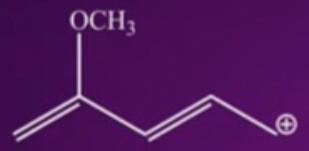

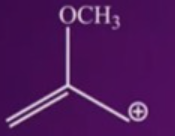

To determine the most stable carbocation among the given options, we need to analyze the structures of the carbocations and consider factors that contribute to their stability.
1. Identify the Carbocations:
- First, we need to look at the structures of the carbocations provided in the options. Each carbocation will have a positive charge on a carbon atom.
2. Assess the Stability Factors:
- Carbocations are stabilized by:
- Hyperconjugation: The interaction of the positive charge with adjacent C-H bonds.
- Inductive Effect: Electron-donating groups can stabilize the positive charge.
- Resonance: Delocalization of the positive charge through pi bonds or lone pairs can significantly enhance stability.
3. Examine Option 2:
- In option 2, we have a carbocation with a positive charge and an OCH3 group attached. The presence of the oxygen atom with lone pairs allows for resonance stabilization.
- The lone pair on the oxygen can participate in resonance, allowing the positive charge to be delocalized over the molecule. This extended conjugation increases the stability of the carbocation.
4. Compare with Other Options:
- Without the specific structures of other options, we can generally state that carbocations with more alkyl groups (tertiary > secondary > primary) and those that can participate in resonance will be more stable.
- If other options do not have similar resonance or have less favorable substituents, they will be less stable than the carbocation in option 2.
5. Conclusion:
- Based on the analysis, the carbocation in option 2 is the most stable due to the extended conjugation provided by the resonance with the OCH3 group.
Final Answer:
The most stable carbocation is Option 2.
---
- First, we need to look at the structures of the carbocations provided in the options. Each carbocation will have a positive charge on a carbon atom.
- Carbocations are stabilized by:
- Hyperconjugation: The interaction of the positive charge with adjacent C-H bonds.
- Inductive Effect: Electron-donating groups can stabilize the positive charge.
- Resonance: Delocalization of the positive charge through pi bonds or lone pairs can significantly enhance stability.
- In option 2, we have a carbocation with a positive charge and an OCH3 group attached. The presence of the oxygen atom with lone pairs allows for resonance stabilization.
- The lone pair on the oxygen can participate in resonance, allowing the positive charge to be delocalized over the molecule. This extended conjugation increases the stability of the carbocation.
- Without the specific structures of other options, we can generally state that carbocations with more alkyl groups (tertiary > secondary > primary) and those that can participate in resonance will be more stable.
- If other options do not have similar resonance or have less favorable substituents, they will be less stable than the carbocation in option 2.
- Based on the analysis, the carbocation in option 2 is the most stable due to the extended conjugation provided by the resonance with the OCH3 group.
The most stable carbocation is Option 2.
Topper's Solved these Questions
Similar Questions
Knowledge Check
Most stable carbocation in the following
A(C6H5)2⊕CHB(CH3)3C⊕C D
D
Select the most stable carbocation:
A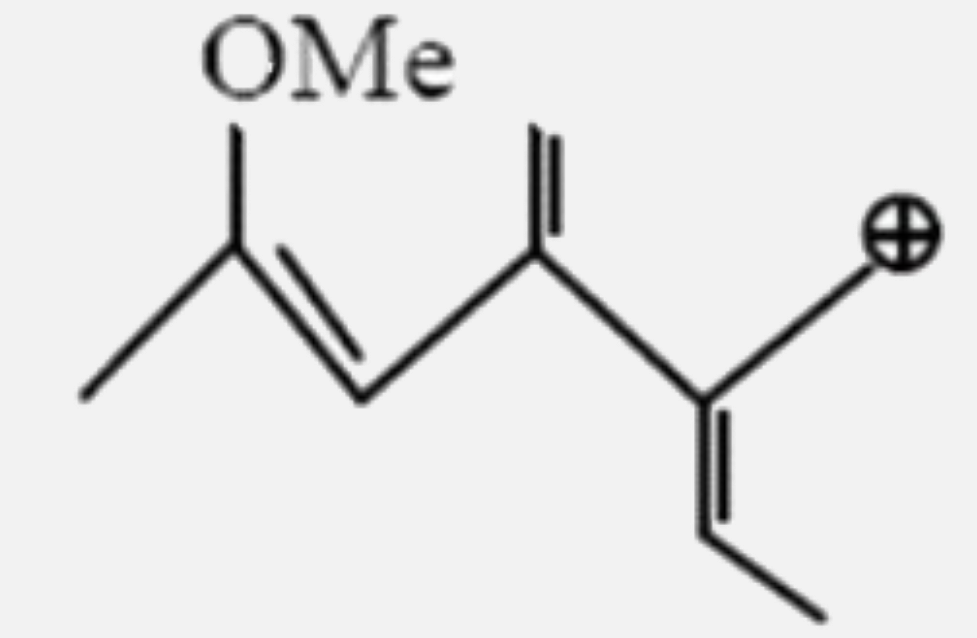 B
B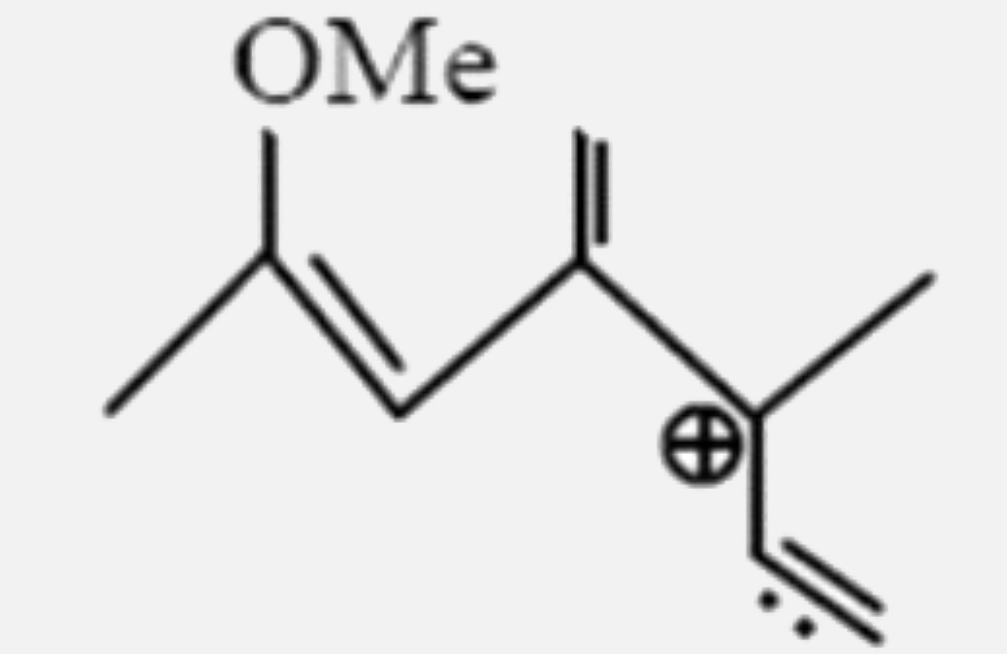 C
C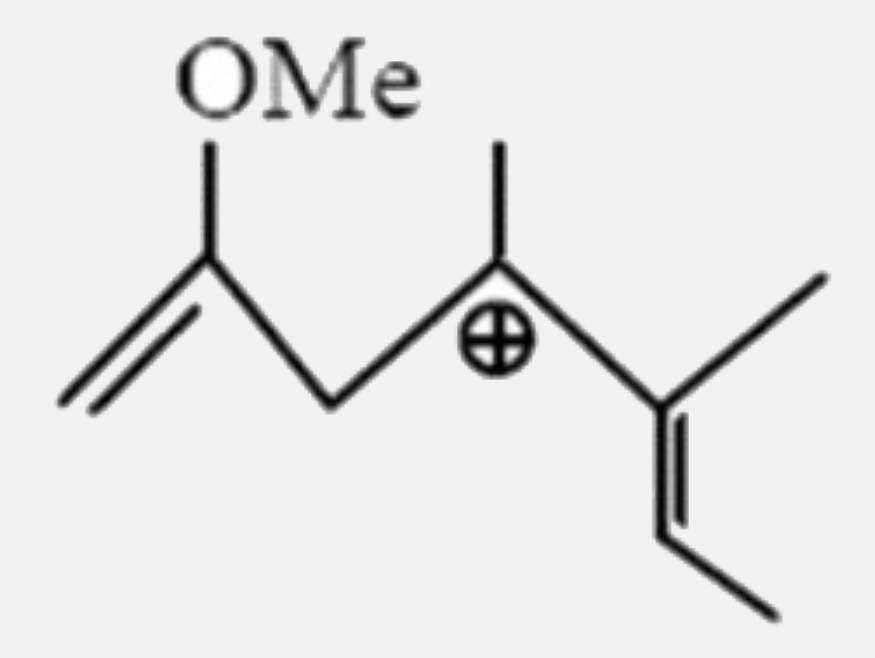 D
D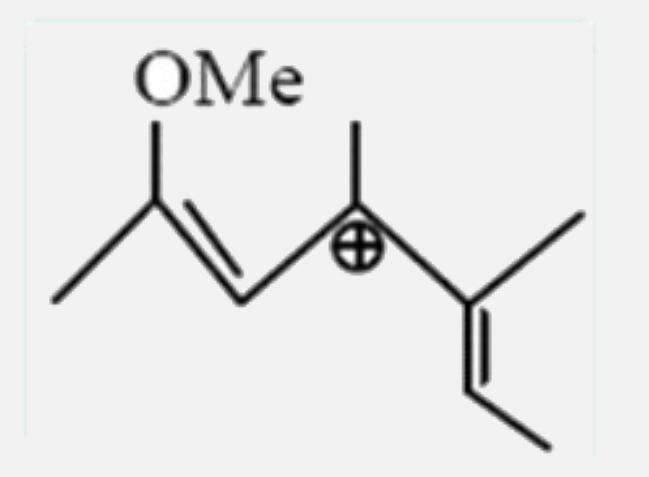
Which amongst the following is the most stable carbocation :-
ACH2⊕CH2B⊕CH2CCH3−C∣CH2⊕DCH3−⊕C∣CH3H
Which of the following is the most stable carbocation .
View SolutionWhich of the following is the most stable carbocation ?
View SolutionWhich allylic carbocation is the most stable carbocation ?
View SolutionWhich among the following is the most stable carbocation ?
View SolutionWhich one of the following is most stable carbocation ?
View Solution
